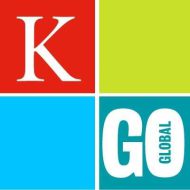Degree programme at King’s
Comparative Literature
Which institution did you go to and why?
National University of Singapore (NUS). It is the best university in Asia.
What did the grant cover and what did it enable you to do?
It covered the cost of a return flight ticket to Singapore, local transport, accommodation, meals and miscellaneous expenses, enabling me to pay full attention to my research there without any financial worry.
How did your research align with one or more of the four global themes in the fourth strand of the King’s International Strategy: Defence & Security; Global Health; Sustainable Cities; Culture & Identity
My project focused on the literary representation of geographical space in fiction (defined as a genre including short story, novella and novel) written by Malaysian and Singaporean ethnic-Chinese writers after the end of the British rule in 1957, in order to see whether narrated landscapes can be regarded as Benedict Anderson’s ‘imagined community’, which is termed to signify ‘nation’ under collective agreement with nationalism. It is related to the localised culture of Malaysia and Singapore and relevant complexity of identity, textually represented in the post-colonial era.
Please summarise any expected benefits of the research conducted
Based on the outcome of my PhD research on contemporary Chinese literary history and my research at NUS about grand Southeast Asian history and literature, I will submit a paper to an academic journal called ‘3L’.
Please summarise the strategic value of your project in deepening the relationship between King’s and your host institution
Southeast Asian literature is a field that KCL has not yet covered. Despite having founded the Lau China Institute and the India Institute in 2008 and 2012 respectively, along with KCL’s strategic relationship with NUS and the University of Hong Kong, KCL still has insufficient concern with the rapid economic and cultural development in Southeast Asian countries and their increasing influence in the globalising world. After a short-term study with Prof. Holden, I highlighted some primary concerns about Southeast Asian English literature at KCL. It not only deepened the strategic relationship between two universities, but also extended the academic map of KCL to an area of which is almost as populous as Europe.
Please describe the social and cultural advantages of your time away
Besides getting a taste of many kinds of delicious East Asian foods, I experienced the cultural complexity that I previously learnt from paper. The diversity of races, the popularity of English used in an ethnically Chinese-dominated society and the developmentalist ideology broke the cultural imagination I held before.
Please describe any possible impacts of the trip on the advancement of your research career at King’s and beyond?
I learned a lot from the classes I attended on Singaporean literature, and from the supervision that Prof. Holden provided.
During the trip, I got a chance to attend an academic conference held by Nanyang Technological University, which is also a world-renowned university. I knew some people, with which I can keep academic relationships. I also understood more about Southeast Asian academia.
